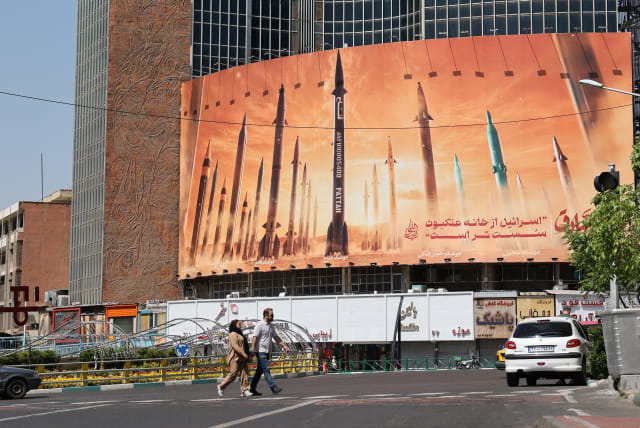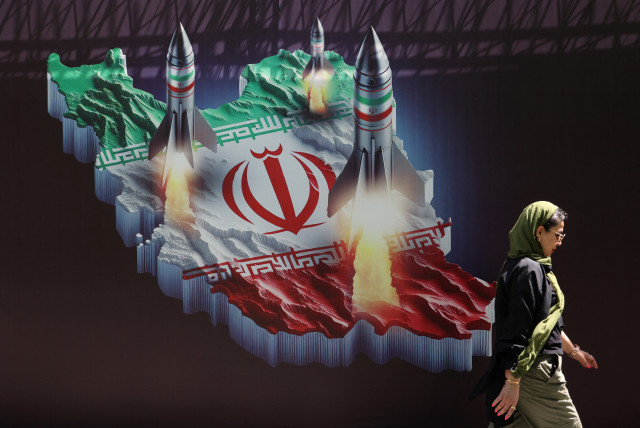Tehran plays down Israeli attacks, signals no further retaliation

An Iranian official told Reuters there were no plans to respond against Israel for the incident.
Explosions echoed over an Iranian city on Friday in what sources described as an Israeli attack, but Tehran played down the incident and indicated it had no plans for retaliation - a response that appeared gauged towards averting region-wide war.
The limited scale of the attack and Iran's muted response both appeared to signal a successful effort by diplomats who have been working round the clock to avert all-out war since an Iranian drone and missile attack on Israel last Saturday.
Iranian media and officials described a small number of explosions, which they said resulted from Iran's air defenses hitting three drones over the city of Isfahan. Notably, they referred to the incident as an attack by "infiltrators," rather than by Israel, obviating the need for retaliation.
An Iranian official told Reuters there were no plans to respond against Israel for the incident.
Read more on the strike in Iran
•Israeli sources to Post: 'An eye for an eye'; not clear why Pentagon leaked info on attack
•Drone strike at Isfahan has worked before, was it the right move now?
•The Middle East is at a crossroads in potential Iran-Israel conflict
"The foreign source of the incident has not been confirmed. We have not received any external attack, and the discussion leans more towards infiltration than attack," the official said.
Israel said nothing about the incident. It had said for days it was planning to retaliate against Iran for Saturday's strikes, the first ever direct attack on Israel by Iran in decades of shadow war waged by proxies which has escalated throughout the Middle East through six months of battle in Gaza.
No mention of Israel
Within Iran, news reports on Friday's incident made no mention of Israel, and state television carried analysts and pundits who appeared dismissive about the scale.
An analyst told state TV that mini drones flown by "infiltrators from inside Iran" had been shot down by air defenses in Isfahan.
Shortly after midnight, "three drones were observed in the sky over Isfahan. The air defense system became active and destroyed these drones in the sky," Iranian state TV said.
Senior army commander Siavosh Mihandoust was quoted by state TV as saying air defense systems had targeted a "suspicious object."
Iranian President Ebrahim Raisi had warned Israel before Friday's strike that Tehran would deliver a "severe response" to any attack on its territory.
Iran told the United Nations Security Council on Thursday that Israel "must be compelled to stop any further military adventurism against our interests" as the UN secretary-general warned that the Middle East was in a "moment of maximum peril."
By morning, Iran had reopened airports and airspace that were shut during the strikes.
Still, there was alarm over security in Israel and elsewhere. The US Embassy in Jerusalem restricted US government employees from travel outside Jerusalem, greater Tel Aviv and Beersheba "out of an abundance of caution."
In a statement, the embassy warned US citizens of a "continued need for caution and increased personal security awareness as security incidents often take place without warning."
Jerusalem Post Store
`; document.getElementById("linkPremium").innerHTML = cont; var divWithLink = document.getElementById("premium-link"); if (divWithLink !== null && divWithLink !== 'undefined') { divWithLink.style.border = "solid 1px #cb0f3e"; divWithLink.style.textAlign = "center"; divWithLink.style.marginBottom = "15px"; divWithLink.style.marginTop = "15px"; divWithLink.style.width = "100%"; divWithLink.style.backgroundColor = "#122952"; divWithLink.style.color = "#ffffff"; divWithLink.style.lineHeight = "1.5"; } } (function (v, i) { });

